A MEETING WITH THE MIXMASTER, PART 1: An Interview With Tom Moulton
Any disco fan knows the name "Tom Moulton." He's the patron saint of the genre because he invented so many of the innovations that formed its bedrock. He created the extended dance mix, the side-length medley, the 12-inch record... so many key elements that made disco a music industry leader in the mid-to-late 1970's bear the signature touch of Tom Moulton. Anyone doing a 12-inch mix today owes him a massive debt of gratitude.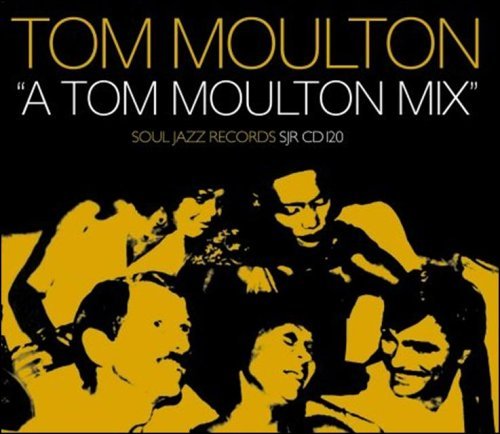 And the end of disco was not the end of the story for Tom Moulton. He remains an in-demand mix specialist for many musicians, having recently done critically-acclaimed work for the Brand New Heavies and Cool Million, and is often called in to remaster classic music from the disco era and curate compilations. In fact, he's got an album coming out soon - Philly Regrooved, a collection of new remixes that Moulton did for vintage tunes from the Philly Groove record label (you can read more about that here).The following is the first installment of an exclusive two-part interview that Your Humble Interview recently conducted with Moulton. Special thanks to Donald Cleveland, reissue producer extraordinaire with the Funky Town Grooves label, for putting it all together. Cue up your favorite disco mixes and let's dive in...
And the end of disco was not the end of the story for Tom Moulton. He remains an in-demand mix specialist for many musicians, having recently done critically-acclaimed work for the Brand New Heavies and Cool Million, and is often called in to remaster classic music from the disco era and curate compilations. In fact, he's got an album coming out soon - Philly Regrooved, a collection of new remixes that Moulton did for vintage tunes from the Philly Groove record label (you can read more about that here).The following is the first installment of an exclusive two-part interview that Your Humble Interview recently conducted with Moulton. Special thanks to Donald Cleveland, reissue producer extraordinaire with the Funky Town Grooves label, for putting it all together. Cue up your favorite disco mixes and let's dive in...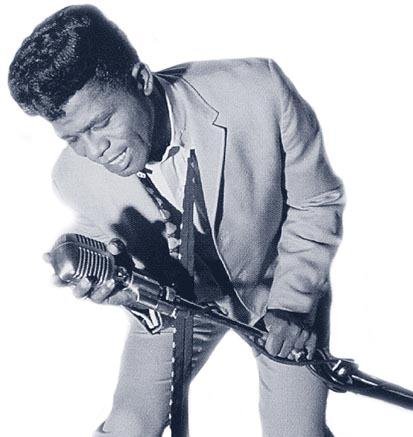 You've said music has always been an important part your life. What were the key records or groups that you listened to as a kid or teenager that inspired that lifelong commitment to music?The sound of the Mills Brothers, Les Paul & Mary Ford and listening to the Hound on WKBW in Buffalo started me on my music adventure.I've heard you've always been a big James Brown fan from his earliest days. Any interesting stories you care to tell us about your youthful J.B. fandom?I worked for King Records in the late 50's in San Francisco and got to meet the Godfather himself. I was so nervous and when we started to shake hands he passed the back of his hand with mine and said "Give me some skin on the dark side." I never forgot that and I wore a glove for a week to keep his touch on me.
You've said music has always been an important part your life. What were the key records or groups that you listened to as a kid or teenager that inspired that lifelong commitment to music?The sound of the Mills Brothers, Les Paul & Mary Ford and listening to the Hound on WKBW in Buffalo started me on my music adventure.I've heard you've always been a big James Brown fan from his earliest days. Any interesting stories you care to tell us about your youthful J.B. fandom?I worked for King Records in the late 50's in San Francisco and got to meet the Godfather himself. I was so nervous and when we started to shake hands he passed the back of his hand with mine and said "Give me some skin on the dark side." I never forgot that and I wore a glove for a week to keep his touch on me.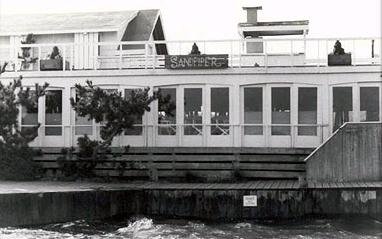 Like most disco fans, I've read about the premixed tapes you prepared for the Sandpiper club on Fire Island when you were getting started. What was on these career-making tapes? Please tell us about the songs/groups used on these legendary tapes (and any other aspects you consider worth mentioning). The idea behind making those tapes was to create a musical trip starting at one tempo and building it to another level. I would vari-speed the songs slowly so the intensity would be building all the time. I tried to use songs that no one knew and have a familiar one every now and then.(Interviewer's Addition: according to Peter Shapiro's Turn The Beat Around, artists featured on these tapes included Ann Peebles, Syl Johnson and the Detroit Emeralds)You have sai
Like most disco fans, I've read about the premixed tapes you prepared for the Sandpiper club on Fire Island when you were getting started. What was on these career-making tapes? Please tell us about the songs/groups used on these legendary tapes (and any other aspects you consider worth mentioning). The idea behind making those tapes was to create a musical trip starting at one tempo and building it to another level. I would vari-speed the songs slowly so the intensity would be building all the time. I tried to use songs that no one knew and have a familiar one every now and then.(Interviewer's Addition: according to Peter Shapiro's Turn The Beat Around, artists featured on these tapes included Ann Peebles, Syl Johnson and the Detroit Emeralds)You have sai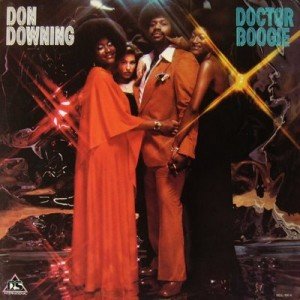 d that you've mixed a whopping 4000 songs during your career as a mixing pro. What was the breakdown of a typical work-week when you were churning out mix after mix during disco's peak era? And what did you do to maintain such a Herculean workload?Well I am still mixing all the time (in fact much more then I did back then). I would roughly try to do 7 songs a week, sometimes more and sometimes less.You're famous for developing the "breakdown" technique in disco mixing (for those not familiar with it, this refers to stripping an arrangement down to its barest beat and then gradually rebuilding its elements). Were there any recordings or producers who inspired you to develop this technique? The break was an accident. One of the first songs I mixed was "Dream World" by Don Downing and the song modulated up to another key. I couldn't go back to the beginning of the song because it would modulate down a step so I took out everything except the rhythm percussion and built the record back up musically. Everyone seemed to like it so I started doing it on most records.Donald Cleveland told me that you used an Asian percussionist named Moto on a lot of remixes and that there's a special "legend of Moto" story to be told. Would you care to elaborate on this?
d that you've mixed a whopping 4000 songs during your career as a mixing pro. What was the breakdown of a typical work-week when you were churning out mix after mix during disco's peak era? And what did you do to maintain such a Herculean workload?Well I am still mixing all the time (in fact much more then I did back then). I would roughly try to do 7 songs a week, sometimes more and sometimes less.You're famous for developing the "breakdown" technique in disco mixing (for those not familiar with it, this refers to stripping an arrangement down to its barest beat and then gradually rebuilding its elements). Were there any recordings or producers who inspired you to develop this technique? The break was an accident. One of the first songs I mixed was "Dream World" by Don Downing and the song modulated up to another key. I couldn't go back to the beginning of the song because it would modulate down a step so I took out everything except the rhythm percussion and built the record back up musically. Everyone seemed to like it so I started doing it on most records.Donald Cleveland told me that you used an Asian percussionist named Moto on a lot of remixes and that there's a special "legend of Moto" story to be told. Would you care to elaborate on this?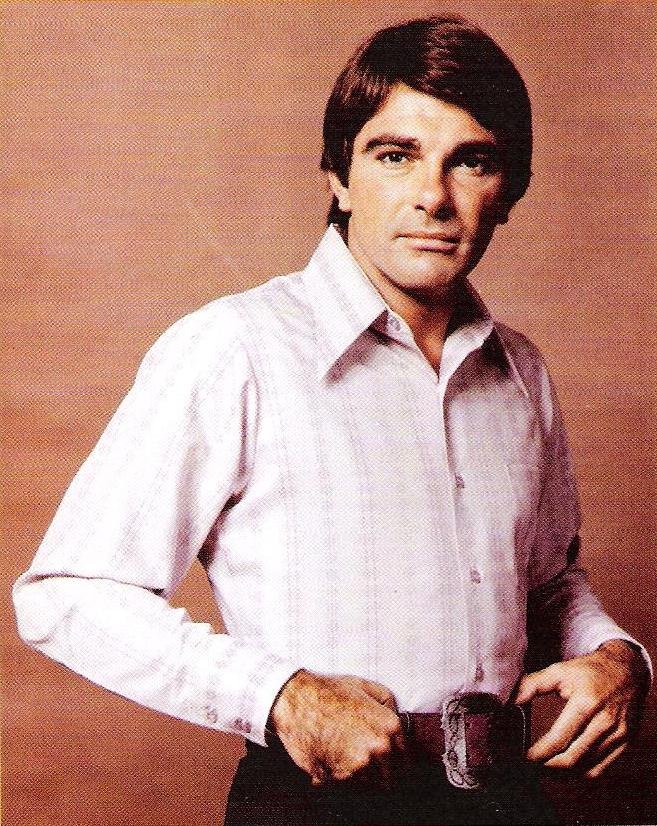 I am sure Donald mentioned that to see if I would tell you the truth about Moto. Well, Moto was this frustrated percussionist who liked to play on records and I used him a lot. In fact, anytime I needed some percussion he was always around. He got his name from using the first two letters of his last name and first name and put them together.Here's a question about a specific mix - your extended version of Ashford & Simpson's "Found A Cure": how did you become involved with doing that mix? I was asked by Johnny D. (D'Mairo) from Atlantic Records about mixing a track for Ashford & Simpson and which one would I like to do. I picked "Found A Cure." I always find something to inspire myself on a song I like because there is always something that wasn't used or isn't up in the mix that gets me excited. In fact, my friend Paul Simpson said why don't you surprise everyone and put two breaks in it? It was a good idea and I did exactly that.You've remixed some electronic projects, like the Kebekelektrik album. Is there a difference in how you approach mixing a purely (or mostly) electronic record as opposed to how you mix things with a greater variety of instrumentation?Well, I try
I am sure Donald mentioned that to see if I would tell you the truth about Moto. Well, Moto was this frustrated percussionist who liked to play on records and I used him a lot. In fact, anytime I needed some percussion he was always around. He got his name from using the first two letters of his last name and first name and put them together.Here's a question about a specific mix - your extended version of Ashford & Simpson's "Found A Cure": how did you become involved with doing that mix? I was asked by Johnny D. (D'Mairo) from Atlantic Records about mixing a track for Ashford & Simpson and which one would I like to do. I picked "Found A Cure." I always find something to inspire myself on a song I like because there is always something that wasn't used or isn't up in the mix that gets me excited. In fact, my friend Paul Simpson said why don't you surprise everyone and put two breaks in it? It was a good idea and I did exactly that.You've remixed some electronic projects, like the Kebekelektrik album. Is there a difference in how you approach mixing a purely (or mostly) electronic record as opposed to how you mix things with a greater variety of instrumentation?Well, I try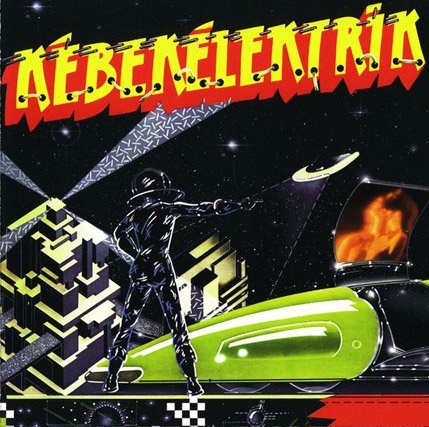 to put the soul into the electronic sound and sometimes you have to get very creative to create that illusion. With "War Dance," I had the left and right synths be phased and they were moving in tempo with the beat and constantly crisscrossing each other. You hear the effect more with earphones - and of course when you're under the influence of... When looking back at your mixography, were there any songs that you thought would be big hits that never climbed the charts? And were there any mixes that shocked you by being bigger hits than you imagined?I can't think of any one specifically. I always went into the studio to come out with the best mix I could do. PROMOTION is always the way you get a hit record.It's no secret that some artists, writers and producers objected to having their work remixed. Did you ever get flak from someone about a mix you did for their work? What was the most memorable incident(s) like this and how did you deal with it?It was like that in the beginning. Some producers felt threatened by it and others were thankful for the hit. I didn't want to be a producer - all I wanted to be was the objective side of the producer.
to put the soul into the electronic sound and sometimes you have to get very creative to create that illusion. With "War Dance," I had the left and right synths be phased and they were moving in tempo with the beat and constantly crisscrossing each other. You hear the effect more with earphones - and of course when you're under the influence of... When looking back at your mixography, were there any songs that you thought would be big hits that never climbed the charts? And were there any mixes that shocked you by being bigger hits than you imagined?I can't think of any one specifically. I always went into the studio to come out with the best mix I could do. PROMOTION is always the way you get a hit record.It's no secret that some artists, writers and producers objected to having their work remixed. Did you ever get flak from someone about a mix you did for their work? What was the most memorable incident(s) like this and how did you deal with it?It was like that in the beginning. Some producers felt threatened by it and others were thankful for the hit. I didn't want to be a producer - all I wanted to be was the objective side of the producer.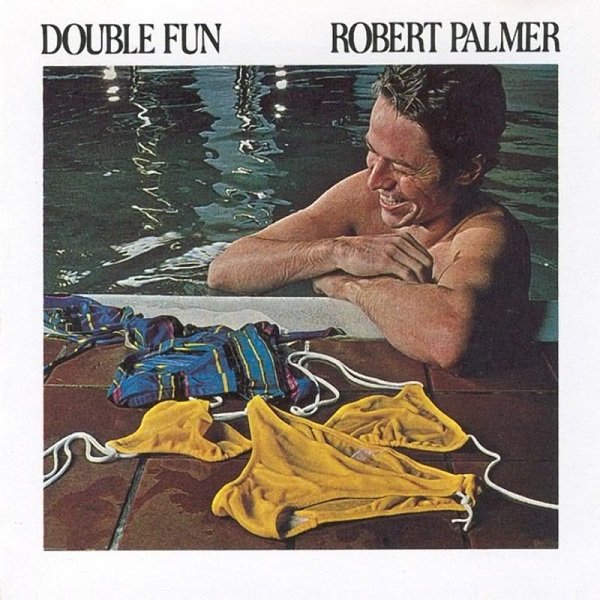 You've done the occasional production, though you've said it's not your preference. One credit that interests me is Robert Palmer's Double Fun album on the Island label, which lists you as producing three tracks (including a great mellow-funk version of "You Really Got Me"). Any stories to tell from this gig?I was more involved with the project then I was credited for. I did do a lot of overdubs on the album. I am a perfectionist and wouldn't let Robert do any phone-ins. I wanted all or nothing - and I got it.Continuing with the topic of Island Records, it is interesting to note that you mixed reggae records for Island and other labels in addition to the disco fare you're known for. I've heard this was a tricky process due to cultural laws in Jamaica during that time. Could you please tell us about this? I was doing some mixing for Clem Dodds in Jamaica and I had to take the tapes out of there because they weren't letting anything Jamaican leave the island. I was so scared going through customs. The cab driver went over and talked to the customs agent and I just walked through.Be sure to check in for the other half of this interview on Friday. Part 2 will feature Moulton discussing Philly Regrooved as well as his views on modern music and the classic era of Pro Wrestling (!!!). Don't miss it...
You've done the occasional production, though you've said it's not your preference. One credit that interests me is Robert Palmer's Double Fun album on the Island label, which lists you as producing three tracks (including a great mellow-funk version of "You Really Got Me"). Any stories to tell from this gig?I was more involved with the project then I was credited for. I did do a lot of overdubs on the album. I am a perfectionist and wouldn't let Robert do any phone-ins. I wanted all or nothing - and I got it.Continuing with the topic of Island Records, it is interesting to note that you mixed reggae records for Island and other labels in addition to the disco fare you're known for. I've heard this was a tricky process due to cultural laws in Jamaica during that time. Could you please tell us about this? I was doing some mixing for Clem Dodds in Jamaica and I had to take the tapes out of there because they weren't letting anything Jamaican leave the island. I was so scared going through customs. The cab driver went over and talked to the customs agent and I just walked through.Be sure to check in for the other half of this interview on Friday. Part 2 will feature Moulton discussing Philly Regrooved as well as his views on modern music and the classic era of Pro Wrestling (!!!). Don't miss it...


